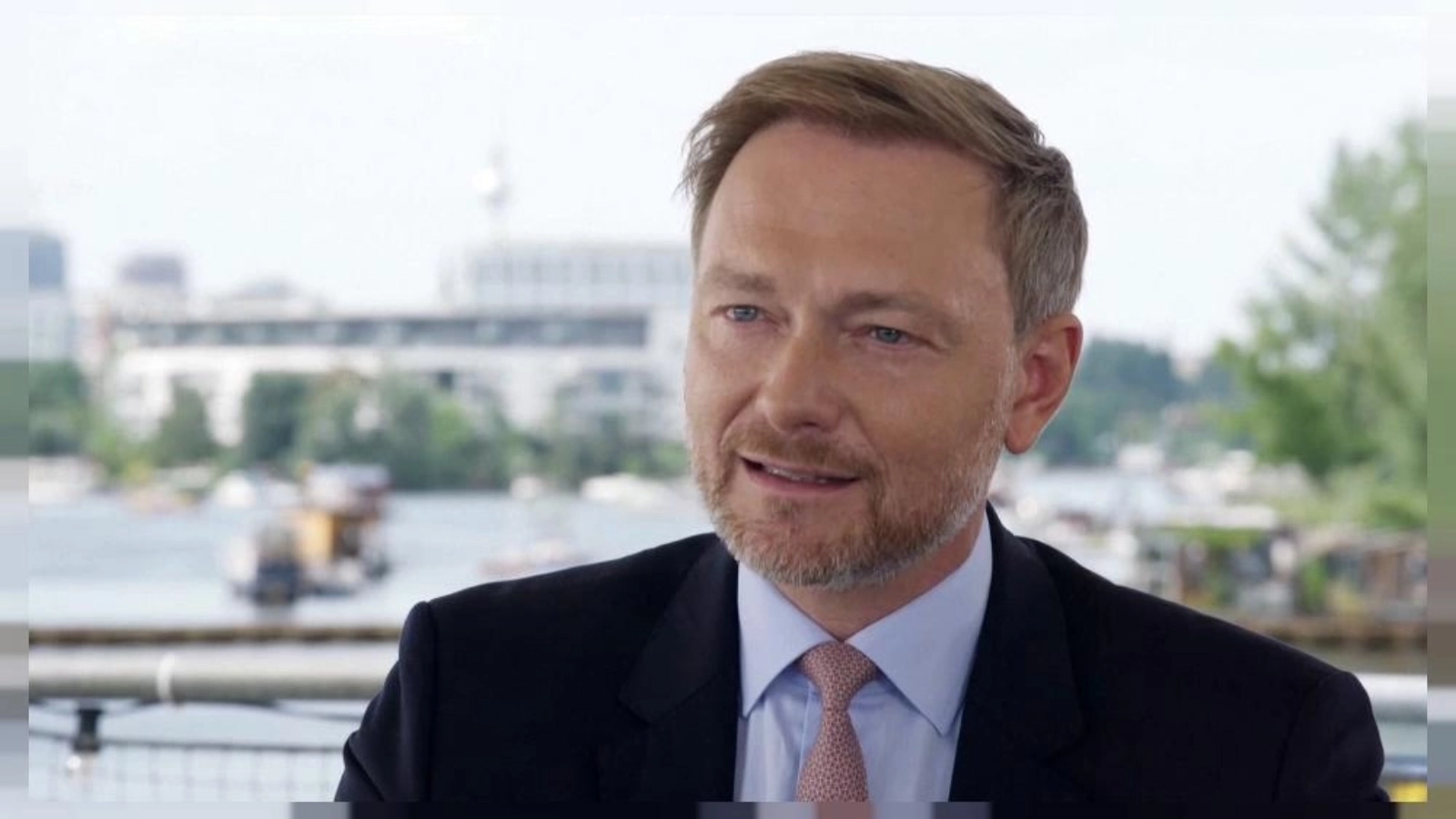The EU's debt and deficit rule reform is one of the hottest topics this year. Critics say the rules are no longer up to date. After being suspended for the first time due to the Covid-19 pandemic, they are now to be reformed. Germany in particular is calling for strict rules. The enr spoke with German Finance Minister Christian Lindner about what is at stake.
The positions could not be further apart: EU countries such as Germany and the Netherlands are insisting on greater fiscal discipline while highly indebted ones fear that faster debt reduction could jeopardise their economic growth.
The Union's debt and deficit rules, known as the Stability and Growth Pact (SGP), set debt ceilings for the bloc's member states. Temporarily suspended due to the Covid-19 pandemic and then again until the end of this year due to the consequences of Russia's war on Ukraine, a reform of the rules is currently being negotiated in the EU.
"Sound public finances are a precondition for a competitive single market and a stable monetary union. This is why Germany is advocating ambitious efforts to reform the Stability and Growth Pact," German Finance Minister Christian Lindner told the European Newsroom (enr) in a video conference interview.
European Commission's reform proposal met with criticism from Germany
In proposals presented in mid-April, the European Commission had suggested granting highly indebted countries more flexibility in reducing debts and deficits. It does not foresee a universal rule on the speed of debt reduction that would apply to all member states. But Germany is calling for countries with excessive debt to be obliged to reduce it by at least one percent each year. "The European Commission's proposal is not yet a landing zone and has to be improved because so far it is not guaranteed that we will see a realistic and reliable decrease in debt and deficit levels," said Lindner.
While other partners reject a fixed cut, Lindner, leader of the liberal Free Democratic Party that governs in coalition with the Social Democrats and Greens in Germany, argued that the 1 percent reduction in normal economic times "is not overly ambitious" and said he was open to introducing a safeguard clause (which would allow deviations from fiscal targets) for times of crisis in order to "address the concerns" of other countries about this idea.
Although Lindner insisted that Berlin was willing to "discuss room for improvement" in the Brussels proposal, he was sceptical about the possibility of introducing exceptions in the deficit calculation for certain investments, for example in defence, as some countries are calling for.
"We have to maintain a high level of public sector investment on the one hand. On the other hand, there is no realistic alternative to reducing deficits and debt ratios. Too high public debt would harm our economic development and the reliability of the euro as our common currency," he said.
Several member states have far higher debt than the permitted 60 percent of GDP. Greece is in the lead, with public debt of over 189 percent of GDP, followed by Italy (152.6 percent) and Portugal (127 percent).
Germany isolated?
Germany's finance minister also denied that his country was isolated in the negotiations and said other countries had concerns about the Brussels proposal even though they might not be voicing them loudly.
"Others might be less vocal but there are many member states who share our views on the importance of maintaining the stability and credibility of the fiscal rules," said the minister, adding that he was convinced that an agreement would be reached on one of the most divisive issues in the EU.
Croatian Finance Minister Marko Primorac, for example, said his country could live with the current rules, because according to government projections, public debt will fall to below 60 percent of GDP already next year. At the same time, he said Croatia was ready to support any improvement in terms of increasing the transparency and simplicity of the rules. The Croatian government expects the debt-to-GDP ratio to fall to 62.6 percent this year and even to 55.6 percent by the end of 2026.
Review of EU's long-term budget
This year, the EU will review the Multiannual Financial Framework, the seven-year EU budget. Lindner said he expected the Commission to ask for additional funds, partly because of the high level of assistance to Ukraine.
He said he opposed an increase in the European budget that would be borne by member states and instead proposed redistributing existing funds.
"Before increasing the contributions of the member states, additional financial needs should be covered by reallocations or by using the existing flexibilities in the EU budget for unforeseen events. Therefore, we do not see the need to introduce new additional funds," he said.
Lindner also said that he was not in favour of creating a new instrument like the Next Generation EU to issue joint bonds, for example, because the existing funds had not been used yet. As for aid for the reconstruction of Ukraine, he said this was a separate discussion that should involve international financial institutions such as the IMF, multilateral development banks and the G7.
Curb inflation as quickly as possible
The German minister said high inflation was a problem for national budgets and for the financial instruments of the European Union. "This is why we have the responsibility to reduce inflation as fast as possible. If we counteract monetary policy by our fiscal policies with higher expenditures, for example, then the process of fighting inflation would last longer and would harm our economies more deeply," said Lindner.
Referring to the idea of exempting increased defence spending needs from the calculation of the deficit, which is advocated by some countries, he said: "Why am I so sceptical? Simply because capital markets do not distinguish between motives for making debt. For the capital markets, debt is debt and too high debt leads to instability. It is potentially fuelling inflation and reduces the sustainability of our public finances."
Italy the only country that has not ratified the ESM
Regarding the European Stability Mechanism (ESM) bailout fund, Lindner said he expected Italy to ratify its reform "in a quite short period of time" and after an "exchange of views on the future developments in the next years."
"I think the Italian government has posed a number of questions, and ESM director Pierre Gramegna will certainly be able to answer them all. I am convinced that we will find common ground," Lindner told the enr.
Italy is the only country not to have ratified the reform of the ESM, with the government arguing that the mechanism should also be used for purposes other than bailouts, for example to promote investment and growth.
Consensus by the end of the year?
From July onwards, Spain will take over the presidency of the European Council and the country's vice-president, Nadia CalviĂąo, will lead the negotiations in the Council of EU economy and finance ministers.
"It is difficult to reach a consensus, but if anyone is capable of uniting us all, it is Nadia CalviĂąo. She has our support and we will be constructive throughout the process", said Lindner, adding that he was convinced the Spanish vice-president "will make an effort" to forge this agreement despite the "very specific domestic circumstances," a reference to the Spanish general election in July.
If no agreement was reached, the current rules should be applied again from 2024, Lindner said, "until there are new ones," despite the fact that these rules would require fiscal adjustments for half of the EU-27, including Germany, for exceeding the thresholds of three percent of GDP for the budget deficit or 60 percent for the public debt, according to the latest Commission forecasts.
Lindner said Germany was doing its best to reach "a consensus this year, but it has to be the best solution and not the fastest one." Germany was prepared to negotiate day and night and through weekends and holidays if necessary to get a consensus by end-2023, he said.
This Friday, the EU finance ministers meet in Luxembourg, and the discussion on debt rules is on the agenda.
































Comentează